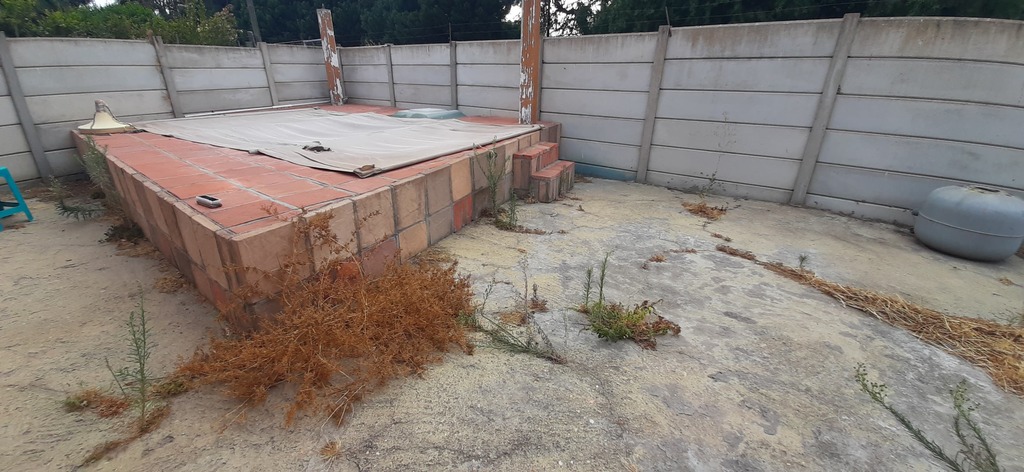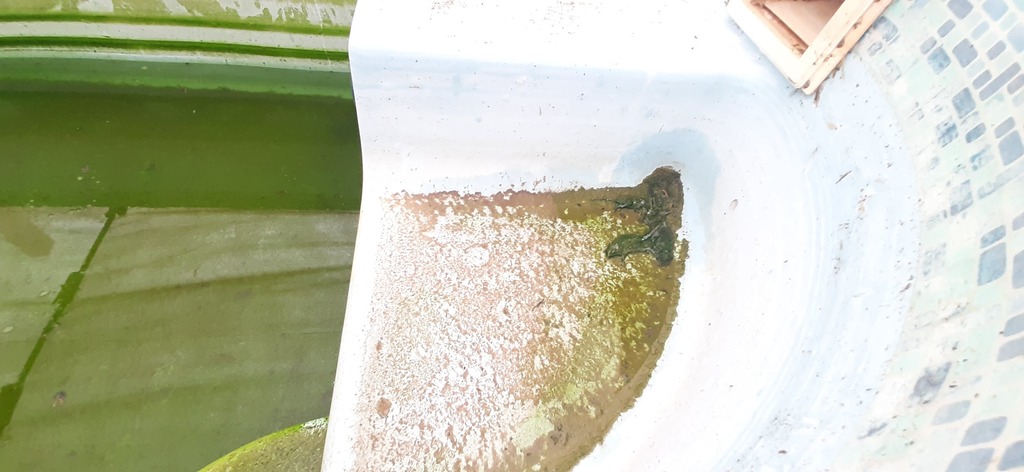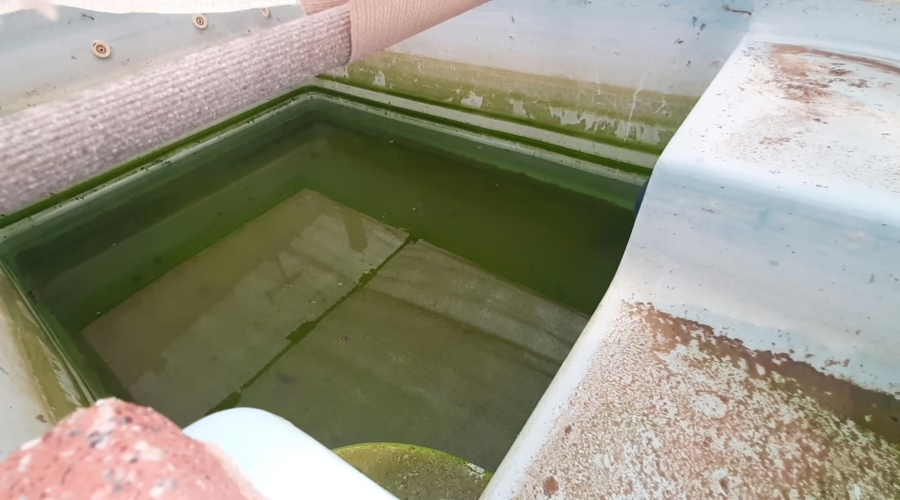A Stinking Health Hazard – The Dangerous State of an Abandoned Pool
Introduction
Swimming pools are typically a source of enjoyment and relaxation. However, when neglected, they turn into breeding grounds for disease, environmental hazards, and public health crises. This article highlights the deplorable condition of an abandoned pool on a property where neglect has reached alarming levels. The situation is worsened by the landlord’s failure to pay municipal services since July 2023, leading to the disconnection of water and electricity and making remediation impossible for the occupants.
The Situation: A Pool of Problems
- Unusable and Hazardous Pool
- The pool, now half-empty and filled with stagnant water, has turned green and emits a foul stench that permeates the house and the surrounding area.
- Since water and electricity services were disconnected in October due to the landlord’s non-payment since July, there is no way to clean or refill the pool.
- Infestation of Vermin
- The stagnant pool has become a breeding ground for mosquitoes, forcing residents to endure nightly attacks. Without electricity, plug-in mosquito repellents cannot be used.
- The pool also harbors dead mice, frogs, and other debris, increasing the risk of disease.
- Proximity and Accessibility Risks
- Built against the boundary wall and adjacent to the sole access road for the area, the pool’s location amplifies its danger.
- The pool has been confirmed by municipal authorities as an illegal structure without approved building plans, raising concerns about its safety and legality.

Public Health Crisis
Neglected pools such as this one pose significant health and safety risks:
- Disease Vector Breeding Ground: Stagnant water fosters mosquito populations, which carry diseases like malaria, dengue fever, and West Nile virus.
- Vermin Attraction: Decomposing animals in the pool introduce harmful bacteria, heightening disease risks.
- Air Quality Issues: The foul odor from the pool contributes to an unlivable environment for occupants and neighbors.

Legal Obligations and Violations
- National Environmental Management Act (NEMA) (1998):
- Property owners have a duty to prevent pollution and environmental degradation. A neglected pool of this nature violates this obligation.
- Municipal Health By-laws:
- Local regulations mandate that property owners maintain premises to prevent health hazards.
- Pools must adhere to water quality and maintenance standards, which this pool flagrantly violates.
- National Building Regulations and Building Standards Act (1977):
- The pool’s status as an illegal structure without approved plans is a clear breach of the law.
- Landlord-Tenant Obligations:
- Landlords are required to ensure that properties are safe and habitable. The complete neglect of this pool reflects a failure to uphold these obligations.
Municipality’s Role and Responsibilities
- Inspection and Enforcement:
- The municipality is empowered to inspect properties, enforce compliance with by-laws, and levy penalties for non-compliance. Their failure to act here worsens the situation and endangers public health.
- Corrective Action:
- Municipal authorities must compel the property owner to repair or remove the illegal structure and address the pool’s hazardous state.
Occupants’ Plight
- Forced Inaction:
- The landlord’s decision to stop paying for municipal services since July, followed by service disconnection in October, has left the occupants powerless to address the worsening condition of the pool.
- Uninhabitable Living Conditions:
- The inability to clean the pool, coupled with the mosquito infestation, foul odor, and vermin, has made the property increasingly unlivable.
Conclusion
This neglected pool is not just an eyesore; it is a public health crisis and a glaring example of landlord neglect, municipal inaction, and the ripple effects of unenforced legal compliance. The failure to pay for municipal services since July 2023 has directly contributed to the escalation of this problem, leaving occupants and neighbors to suffer the consequences.
Municipalities must act swiftly to enforce the law, compel property owners to comply, and safeguard public health. Neglect of this nature is unacceptable and must not be allowed to persist.
The community deserves better. The tenants deserve better. And most importantly, accountability must be demanded from all parties involved.
Legal Context for the Right to Publish
This article is published in accordance with:
- Section 16 of the Constitution of South Africa (1996): Protects the right to freedom of expression and raising public concerns.
- Promotion of Access to Information Act (PAIA) (2000): Ensures transparency in exposing public health hazards.
- National Environmental Management Act (1998): Supports reporting on environmental degradation to hold parties accountable.


